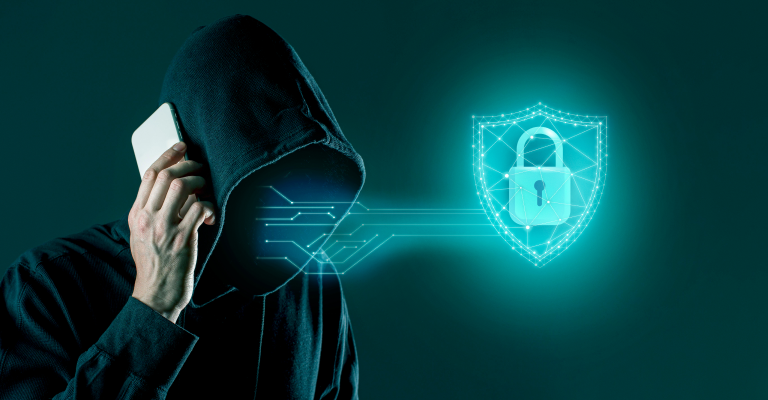Today, when the latest technological developments have blurred the line between reality and fake, the authenticity of one’s credentials hangs in question. With advanced forgeries threatening the very concept of trust, verification of credentials has never been more needed.
In a world full of technologies where a single click can make or break trust, how can we avoid digital deception? Verifying digital credentials has become the only solution that leads to credibility.
Let’s discuss why verifying the authenticity and validity of digital credentials is very important.
What are Digital Credentials and Credential Verification?
Digital credentials refer to an electronic record that contains information about a person’s achievements, skills, and qualifications, such as educational degrees, professional achievement certificates, licenses, etc. They are secured cryptographically to prevent tempering and can be verified online instantly. In simple terms, they are just digital versions of physical documents that can be accessed with a QR code or URL and can be verified easily online.
Credential verification is the process of verifying the authenticity and validity of a digital credential. Each digital credential has a unique hash, which the verifying party can use to check if it carries a digital signature and unaltered information. The issuing organization can also be contacted to confirm that the credential is legitimate and still valid (e.g., not expired or revoked). So, it helps to prevent credential fraud with blockchain and cryptography.
The Threat of Credential Fraud
While digital credentials offer numerous advantages, they also present new challenges in terms of security and authenticity. The ease of creating and disseminating fake digital credentials has given rise to a billion-dollar industry of credential fraud.
A Florian Mantione report claims that 65% of resumes contain misleading claims. More than 30% of applicants show achievements and certifications they did not earn.
This rampant fraud not only undermines the credibility of the holders having such legitimate credentials but also poses a risk to other organizations that base their critical decisions on such credentials—like hiring, promotion, and strategic partnerships.
Benefits of Verifiable Credentials
Apart from verification, there are many other benefits that digital credential verification offers both individuals and organizations. Here are some advantages:
Benefits for Individuals
- Increased Credibility: With verifiable digital credentials, one can easily establish the authenticity of their skills and achievements, hence increasing their credibility in the eyes of any prospective employer or institution.
- Simplified Job Applications: Digital, verifiable credentials will make it easier to apply for jobs, as one can just share the qualification with employers, rather than getting it manually verified.
- Lifelong Learning Recognition: Digital credentials enable individuals to showcase their continuous learning and skill development, even if it occurs outside of traditional educational settings.
Benefits for Organizations
- Reduced Fraud: Verifiable digital credentials enable organizations to check for credential fraud and be very sure that the people they engage or admit truly have the qualifications claimed.
- Streamlined Verification Processes: Services of credential verification have automated this awards verification process and have helped organizations save both time and resources through online certificate verification systems.
- Improved Talent Acquisition: In such a situation, an organization can make more informed hiring decisions based on verifiable digital credentials and pick the candidates most suitable to its needs.
The Importance of Digital Credential Verification
To combat the threat of credential fraud and maintain trust in the digital ecosystem, verifying the authenticity of digital credentials is of paramount importance. By implementing robust verification processes, organizations can:
- Ensure Workforce Integrity: Digital credential verification ensures an organization hires and sustains only those candidates with proper credentials and minimizes potential exposure to—or consequence of—a bad hire involving individuals that misrepresented their qualifications.
- Protect Their Reputation: Associating with individuals who possess fraudulent credentials can tarnish an organization’s reputation and erode public trust.
- Comply with Regulations: Credential verification is legally required in specific industries, like healthcare and finance, to ensure conformity and compliance with industry standards and regulations.
- Build Trust: Digital credential verification is a powerful way in which an organization can lead with a culture of transparency, accountability, and ethical practice.
Where Verifying Digital Credentials is Important
There are many situations where verifying digital credentials is extremely important to prevent fraud and ensure safety. Some key examples include:
Healthcare and Medicine
Verification of doctors’, nurses’, and healthcare professionals’ credentials is critically important from the patient safety perspective. Minting fake medical degrees and licenses can enable unscrupulous people to practice medicine, threatening many lives in the process. Digital Credentials let hospitals verify the authenticity of a practitioner’s qualifications before granting privileges in near real time.
Employment and HR
It is also a part of most hiring processes for background checks and manual verification proves to be time-consuming, if not costly, as applicants can exaggerate qualifications on resumes. Digital versions that can be verified will significantly quicken the hiring process and ensure that only those who are qualified for it get considered.
Education and Transcripts
The issue of fake degrees and modified transcripts is prevalent for both universities and employers. This can lead to students applying to be admitted or appointed based on these forged credentials. Any schools accepting transfer credits must also have some proper method of efficient verification for course completion. This makes digital diplomas and transcripts, along with secure verification, much faster and more trustworthy.
Professional Licensing
Many professions, from accountants to architects, require practitioners to hold a valid license from a state or national licensing board. Verifying these licenses is important to protect public safety and prevent unqualified individuals from misrepresenting themselves. Digital licenses with one-click verification allow the public and employers to check a practitioner’s current status easily.
Skill Certification
Since the job market is trending toward skill-based hiring, employers need to verify specific competencies in a job candidate. Digital skill badges and micro-credentials from training and certification bodies provide a secure and verified record of abilities that can be checked within seconds.
Final Thoughts
In a world where an increasing number of our important records are going digital, it is paramount to be able to trust such credentials’ authenticity and validity. Verifiable digital credentials solve the above problem by ensuring the safety, integrity, and immediate verification of credentials from anywhere in the world.
EveryCRED offers the best solution for developing verifiable digital credentials to establish trust among all parties. It provides users with a convenient, dependable way to make their qualifications evident whenever necessary. If you or your organization is looking for such a verifiable credential solution, EveryCRED is one of the best service providers in the market today.

 11th July, 2024
11th July, 2024 



